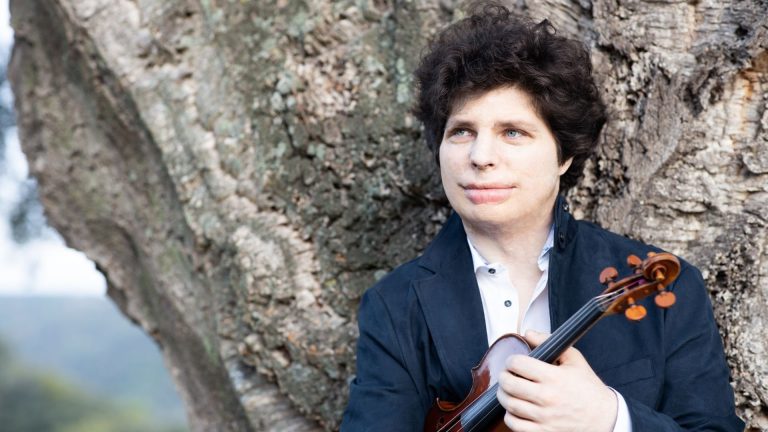One of the world’s most sought-after violinists, Augustin Hadelich, Professor at the Yale School of Music, will join Concerto Budapest to perform Beethoven’s Violin Concerto in D major, conducted by András Keller, on 28 May at Müpa Budapest. On the day after the concert, the artist will give a masterclass for exceptional talents in higher education at Concerto Budapest’s Páva Street headquarters, which is free to all interested people.
Ravishing tone, the finest bow arm, a technique far beyond all norms, a sensual and transparent sound, deep insight into each work – this is the Grammy Award-winning Italian-German-American Augustin Hadelich, one of the greatest violinists of our time, who we interviewed before the concert.
– What is your first memory about music?
– I have two older brothers, who were at the time playing cello and piano – hearing them play in the house, when I was just one or two years old, is my earliest memory of music!
– Why did you choose to play the violin?
– I wanted to make music as well, and my parents gave me a violin for my fifth birthday. Although I later also started playing the piano, the violin always remained my favorite, because of its beautiful sound that sounds like a voice. My first teacher was my father (an amateur musician) who then took me to various other teachers.
– What is the difference between playing with an orchestra as a soloist and playing chamber music?
– Playing a concerto and playing chamber music are different of course— chamber music is played in smaller halls and the few players on stage communicate very directly and intimately with each other. However, I think this difference is not as big as is often assumed – many of the great concertos (like Beethoven and Brahms) are like chamber music on a much larger scale, and the soloist has to listen and react — and not only lead, but also follow — the same way you would in a chamber setting. Half of the time in the Beethoven concerto, the solo violin is accompanying the orchestra! Many times, the violinist leads and follows at the same time. Playing a lot of Beethoven’s chamber music has also helped me understand his concerto better.
– What are the first things that come to your mind if you think of the Beethoven Concerto?
– The most unique and memorable thing is perhaps how it starts, with four notes in the timpani— a motif that returns over and over in the first movement, but every time with different inflection, intention and character (solemn, questioning, angry, pleading, triumphant)
Every time I play the slow movement of the Beethoven, I marvel at how perfect, how simple, intimate and human it is. It transports me every time, I wish it would never end!
The movement that’s most fun for me to play is the last movement, a light-hearted rondo!
– What do you think about Beethoven’s music?
– The better I know and understand Beethoven’s greatest works, the harder it is to imagine a person being able to write something so extraordinary. Just a few weeks ago they released the result of some tests they did on hairs of Beethoven. He had lead poisoning all his life, with a value almost a hundred times athenormal amount. It was probably from the cheap wine he drank, which was sweetened with lead. To think that all of his suffering and his deafness could have been avoided — but maybe then he would not have pushed himself as much as he did, to create such extraordinary art.
– We are very happy and grateful that you said yes for Maestro Keller’s request to give masterclass for talented young Hungarian violinists. What do you think about teaching? What are the most important thoughts that you would like to share with the students?
– I really enjoy teaching— there are many things that I wish I had been told as a student, that I had to slowly, tediously figure out by myself, so perhaps I will make that journey a bit easier for someone. But I’m grateful for all the things I was taught, and want to pass those on. In a masterclass I usually prefer talking more about the interpretation of the pieces rather than going into someone’s technique, because it is more productive that way in a short period of time.











